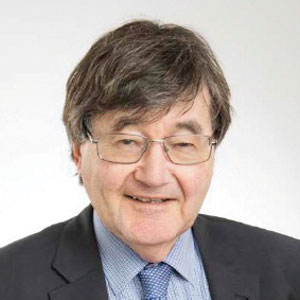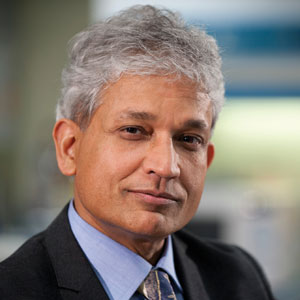The World Health Organisation’s (WHO) 2014 World Cancer Report shows the global burden of cancer is on the rise and warns of a ‘tidal wave’ of cancer in the next 20 years.
The report predicts new cancer cases will increase from an estimated 14 million annually in 2012 to 22 million each year within the next two decades. Over the same period, cancer deaths are predicted to rise from 8.2 million a year to 13 million.
Australia is not immune. One in two Australian men and one in three Australian women will be diagnosed with cancer by the age of 85, and that excludes non-melanoma skin cancers which are easily the most common cancers of all.
It is against this concerning statistical backdrop that South Australian researchers are working to help those diagnosed with cancer and boost prevention into the future.
 Chair of UniSA’s Cancer Epidemiology and Population Health Research Group and Senior Principal Research Fellow at the SA Health and Medical Research Institute (SAHMRI), Professor David Roder (pictured) believes getting down to the individual level may hold the key to cancer prevention.
Chair of UniSA’s Cancer Epidemiology and Population Health Research Group and Senior Principal Research Fellow at the SA Health and Medical Research Institute (SAHMRI), Professor David Roder (pictured) believes getting down to the individual level may hold the key to cancer prevention.
He leads a team of researchers who are examining the prevention, diagnosis and treatment of cancer in the Australian population. Their work informs national and international government policies, and policies of health bodies and non-government organisations including the WHO and Cancer Council Australia.
“The World Cancer Report states 3.7 million cancer deaths per year could have been avoided through individual lifestyle changes, namely quitting smoking, reducing alcohol intake, limiting processed foods and maintaining a healthy weight,” Prof Roder says.
“In addition to these four factors, sun exposure is another important lifestyle factor for Australians, with our skin cancer rate three times higher than any other country in the world.”
Prevention is better than cure
Prof Roder explains that lifestyle must be a factor in the fight against cancer as the population increases – and ages – worldwide.
“It can’t be all about treating our way out of the disease – lifestyle and prevention have to be addressed because of the sheer scale of the problem,” he says.
He also argues that the ageing population places even greater urgency on the need for cancer prevention and treatment-planning. Added to this, there will be a two to three-fold percentage increase in cancer diagnosis in the next 30 years compared to the percentage increase expected in population size.
“If we’re going to address this issue, which is huge, we’re going to need the data to guide evidence-based health systems,” he says.
“Research evidence will be pivotal in treatment planning and health service data will be fundamental for monitoring clinical and health system performance.”
Prof Roder says there needs to be more targeted prevention with screening programs such as bowel cancer screening.
“There’s no point screening everyone because you’re just raising anxiety and wasting money,” he says.
“We need more research to identify high-risk groups and to focus resources there.
“We have to be much more targeted in what we do. We have to evaluate whether what we’re doing is making a difference. That involves collecting data on risk factors, on screening, and on treatment and supporting after-treatment care in the community.”
The importance of prevention is just as crucial to laboratory scientists at the frontier of new discoveries in cancer treatment because smoking, obesity and alcohol kill by causing DNA damage or exploiting genetic weakness. Exercise and a healthy diet are vital.
In fact, genomics research is now determining how lifestyle decisions help cause or prevent disease.
 Professor Sharad Kumar (pictured), co-Director of the Centre for Cancer Biology (CCB), a National Health and Medical Research Council (NHMRC) Senior Principal Research Fellow and UniSA’s Research Professor and Chair of Cancer Biology, says there is huge potential for genomics – the study of genes and their function – to transform healthcare and medicine over the next few decades.
Professor Sharad Kumar (pictured), co-Director of the Centre for Cancer Biology (CCB), a National Health and Medical Research Council (NHMRC) Senior Principal Research Fellow and UniSA’s Research Professor and Chair of Cancer Biology, says there is huge potential for genomics – the study of genes and their function – to transform healthcare and medicine over the next few decades.
“There are a number of areas of medicine – and cancer is one of them – where genome sequencing will have an impact quite soon,” he says.
Medicine based on our genes
Personalised medicine is medicine based on our genes. Scientists are working towards a future where each of us will be able to get a blood test to have a complete analysis of the 20,000 coding-genes which make up our personal genetic blueprint.
Personalised medicine classifies cancer tumours according to their genetic make-up instead of where they grow in the body.
It has been touted as the most exciting change in cancer treatment since the invention of chemotherapy.
Prof Kumar says one of the main goals of personalised medicine is to reduce the side effects for the patient.
“With chemotherapy you kill cancer but in the process you kill many normal cells and it takes a long time for the patient to recover from the side effects,” he says.
“Chemotherapy is debilitating and there are many cases where the chemotherapy is more painful than the cancer itself. But it is important because in most cases it’s the only thing we have.
“The goal with personalised medicine is to obtain a patient-specific profile using genomics, proteomics and metabolomics that allows us to design treatment to suit an individual.
“On top of that, you can do pharmacogenetics, which means drugs based on the profile of the patient. You can then cut out many of the side effects so you are not taking a sledge-hammer approach and simply killing off any cells that divide fast.”
Prof Kumar says while personalised medicine is definitely exciting, it is driven by technology but the biological knowledge is still lacking.
“The problem is that our knowledge about the biology hasn’t caught up such as individual genes, how they function, how they work,” he says. “Biology is a slow and painstaking process. It requires a lot of experimentation and that’s where people like us come in.”
The CCB – an alliance between UniSA and SA Pathology – boasts South Australia’s largest concentration of fundamental cancer research.
“A lot of our work at the CCB is the biology of cancer, which means we investigate how and why cells become cancerous,” Prof Kumar says.
“My own group specialises in how cells die and what keeps them alive. One of the basic attributes of a cancer cell is that they acquire the ability to survive where the normal cells will not survive.
“Other CCB labs study the growth and spread of cancer cells; we have people who work on different types of cancer, and we have colleagues who specialise in blood cancers, we study how to kill cancerous cells and the drugs to kill them. So we cover discovery combined with translational and clinical research.”
Prof Kumar says it is important to remember that cancer is not one disease, it’s hundreds of different diseases.
He says as a result, there can be no simple cure or magic bullet for cancer. But with personalised medicine, there is hope.
Prof Kumar says one example where personalised medicine has already had a significant impact is through the drug Gleevec, a treatment for patients with Chronic Myeloid Leukaemia (CML).
“Gleevec is based on more than four decades of fundamental cancer research,” he says.
“With the discovery that a specific enzyme can cause CML, scientists designed an effective drug which almost completely eliminates the tumours carrying the aberrant gene in CML patients.
“Since other cells are not affected by it, many of the usual side effects are eliminated.
“We have Tim Hughes at the CCB who is part of the world-wide network of researchers helping to find the new generation of this drug; to make it even more effective, to ensure less is needed, and that it’s cheaper.
“These are the drugs of the future – they will be based on patient biology, rather than using a generic approach which might or might not work.”
Prof Kumar says personalised medicine will benefit not just the individuals and their families affected by cancer, but will also benefit society overall.
“From a common sense perspective, personalised medicine will save money because you are not just giving everything to everyone and hoping that something might work.
“But most importantly it will benefit the patient in treating them with exactly what’s necessary so they have the best chance of living a long and, hopefully, a disease-free life.
“After all, cancer is personal and it could be any one of us.”